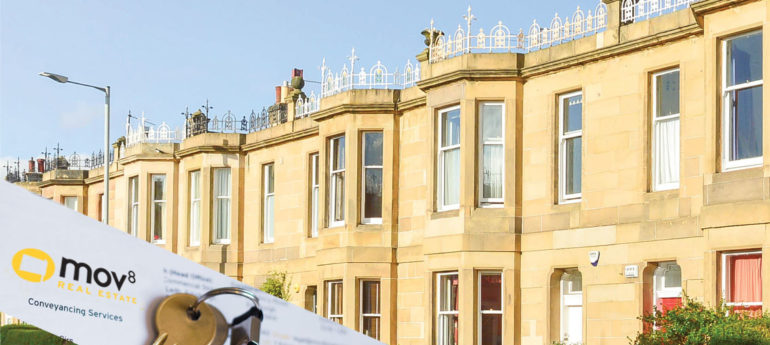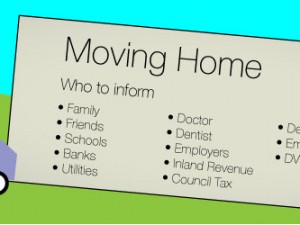
The property market can be overwhelming, filled with jargon and complicated processes guaranteed to befuddle first-time sellers and seasoned veterans alike. Our detailed Property Selling Guide aims to demystify the industry to give you the tools to confidently sell your home (and for the price you want, too).
In this instalment, we’ll be tackling the offers process. From receiving notes of interest to setting a closing date and even negotiating the price you want, we’ll cover what you need to know to make your selling journey a breeze. Let’s dive in.
Receiving Offers
Once your home is officially on the market, you’ll hopefully begin to receive offers from interested parties. When a potential buyer likes your property and wants to take the next step to make it their own, they will formally make an offer to buy or submit an official Note of Interest. But what’s the difference?
Offers Vs. Note of Interest
What Is an Offer?
An offer is a formal bid to buy a property in Scotland. It must be submitted in writing and sent via the buyers’ solicitor to be legally recognised. Your own solicitor will inform you of any offers and allow you to consider whether you’d like to accept, decline or return to the buyer and negotiate the price.
If you accept the offer, your solicitor will send the buyer’s solicitor a ‘letter of acceptance’, which accepts the offer as it stands, or a letter of ‘qualified acceptance’, which accepts the offer depending on certain conditions. In this case, the buyer’s solicitor will discuss the conditions with them and negotiate with your representative.
It’s worth noting here that an offer to buy is not a legally binding agreement to purchase the property in Scotland. While you may accept the offer, the deal only becomes legally binding with the ‘conclusion of the missives’ (more on this later), meaning that you or the buyer may pull out at any time up to this point without penalty.
What Is a Note of Interest?
A Note of Interest is how a buyer shows you that they would like to make an offer on your home before you sell it to someone else. It’s typically done through the buyers’ solicitor, who will inform your solicitor (or estate agent, depending on who handles your sale).
Submitting a Note of Interest doesn’t guarantee the buyer a chance to make a bid on your property – if you wish to sell it to someone else, you’re entirely within your right to do so. However, you may want to set a Closing Date if you receive multiple Notes of Interest.
What Is a Closing Date?
A Closing Date is a date by which all interested parties must submit their written offers to buy the property in order to be considered. Once the Closing Date ends, you can examine each bid and decide who you’d like to accept. You don’t have to take the highest offer (or any offer at all) if you don’t want to.
Typically, buyers’ offers will come with conditions of their own. If the buyer who made the highest offer has conditions you aren’t happy with, your solicitor can see if they would be willing to negotiate. If not, you will need to accept one of the lower bids with conditions you like or choose to re-market your home.
Some common conditions include:
- A date to collect the keys and move in
- Any items in the property they want included in the sale (such as white goods)
- Conditions based on information in the property’s Home Report
Accepting Offers: Next Steps
As mentioned above, once you have chosen an offer you’re happy with, your solicitor will send out an official letter called ‘qualified acceptance’, which informs the buyer that you’re happy to move forward with their offer and lists any conditions you want the buyer to agree to before the sale is processed.
Conveyancing & Concluding the Missives
If the buyer is happy with your conditions, your solicitor will begin ‘conveyancing’. This is the process of legally transferring ownership of the property from you to the buyer – it starts when you formally accept an offer on your home and ends when you hand over the keys.
The conveyancing process can be split into three parts:
-
- Concluding the missives – if you and the buyer are happy with the conditions set out in the offer, your solicitor and their solicitor will send each other a series of documents called ‘missives’. These letters are used to negotiate and officiate the sale and mark a legally binding contract between you and the buyer upon creation of the ‘concluding missive’. At this stage, if either party pulls out of the sale, they will incur a penalty.
- Transfer of funds – Next, the buyer’s solicitor will instruct their client to transfer the property purchase funds to your solicitor. On the Date of Entry, your solicitor will then transfer this money over to you, and the paperwork detailing the change of ownership will be passed along to the buyer.
- Settlement – once both parties agree that they are happy with the paperwork and your solicitor confirms that you have received the property purchase funds, the sale is officially ‘settled’, and the keys are handed over to the buyer. Congratulations – you’ve officially sold your home!
Thinking of Selling Your Property?
If you’re thinking of selling your property, our team of experts is here to help you get the best possible price in the quickest possible time. With decades of experience under our belt, we’ve seen all possible market conditions over the years and are perfectly placed to help you navigate the current property landscape. So, why not get in touch today?
Fill in our free online home valuation form here
Call us on 0345 646 0208 (Option 1)
or email [email protected] to organise a free valuation of your home or to get a full, transparent breakdown of the costs of selling your home.
Thinking of Buying?
Our specialist Purchasing Team helps thousands of buyers every year to get the best possible deal on their next dream home. Our friendly and expert lawyers will then take you through the buying process in Scotland until you have your keys.
Get a quote for buying online here
Call us on 0345 646 0208 (Option 2)
or email [email protected], and we’ll be delighted to help.















